The slightly domed lid depicts the reclining bacchante resting among vegetation, grapes, and flowers, draped in a flowing purple fabric and surrounded by nude cherubs symbolizing play, music, and desire. The casket body features a continuous narrative in high relief, brimming with movement: musical children playing cymbals, lyres, and flutes; faun-like boys pressing grapes; muses painting or sculpting busts—an allegory of the Liberal Arts and the Dionysian retinue. These elements together form a festive, symbolic work with extraordinary technical execution.
Made from soft-paste porcelain, it features hand-painted enamel decoration in vivid shades of pink, purple, green, and gold over a white base, typical of the finest Capodimonte pieces. The original gilt bronze mount with hinge and acanthus clasp adds elegance and function, with light age patina. The interior is clean, and the entire piece is free from cracks, restorations, or losses. The enamel remains vibrant, greatly enhancing its value.
The cobalt blue underglaze mark on the base, featuring a Bourbon lily above an “N”, identifies it as a product of the Royal Naples Factory between 1771 and 1834. This mark, along with the handwritten inscription, confirms the authenticity and approximate dating of the piece. The scene is directly derived from the engraving La Bacchante endormie by Cathelin (ca. 1770), reinforcing its connection to French aesthetics adapted by Italian artists.
This casket stands out not only for its formal beauty but also for its rarity on the decorative arts market, making it a perfect addition to a fine porcelain showcase or a collection dedicated to Italian Neoclassical art. It would also serve as a striking centerpiece in a classically styled library or salon, where its sculptural presence, vivid colors, and mythological inspiration will add refinement and distinction.
A unique and historically rich piece, perfect for collectors of European classical art and high-end porcelain. Don’t miss the chance to acquire this Capodimonte treasure.
Dimensions: 28.5 cm × 18 cm (11.22 in × 7.09 in)
History of “La Bacchante endormie”
The figure of the “sleeping bacchante” comes from Greco-Roman mythology, where bacchantes (or maenads) were priestesses of the god Dionysus (Bacchus), known for their ecstatic rituals and association with nature, wine, music, and frenzy. From the 18th century onward, the image of the bacchante took on a new aesthetic interpretation in France, becoming a symbol of sensual freedom and harmony with nature. One of the most influential representations was the engraving La Bacchante endormie by Pierre-Gabriel Cathelin, based on drawings attributed to Jean-Honoré Fragonard.
This image was widely replicated and reinterpreted across painting, sculpture, and the decorative arts. The Neapolitan Capodimonte manufactory, especially under Filippo Tagliolini’s artistic direction (1790–1808), integrated this iconography into its designs, adapting it to the Neoclassical style. Pieces from this period reflect a strong interest in classical models, idealized pastoral life, and the celebration of the arts and the senses. The sleeping bacchante evolved from a mythological subject into an allegory of the arts, creative dreams, and the feminine ideal according to the Grand Tour aesthetics.
The Royal Porcelain Factory of Naples, a continuation of the Bourbon-founded Capodimonte, held great prestige in Europe, exporting pieces to the courts of Vienna, Paris, and Madrid. The introduction of polychrome high relief and narrative scenes around utilitarian objects like boxes or decorative caskets was one of its main innovations, influencing later production in Italy, France, and Germany.



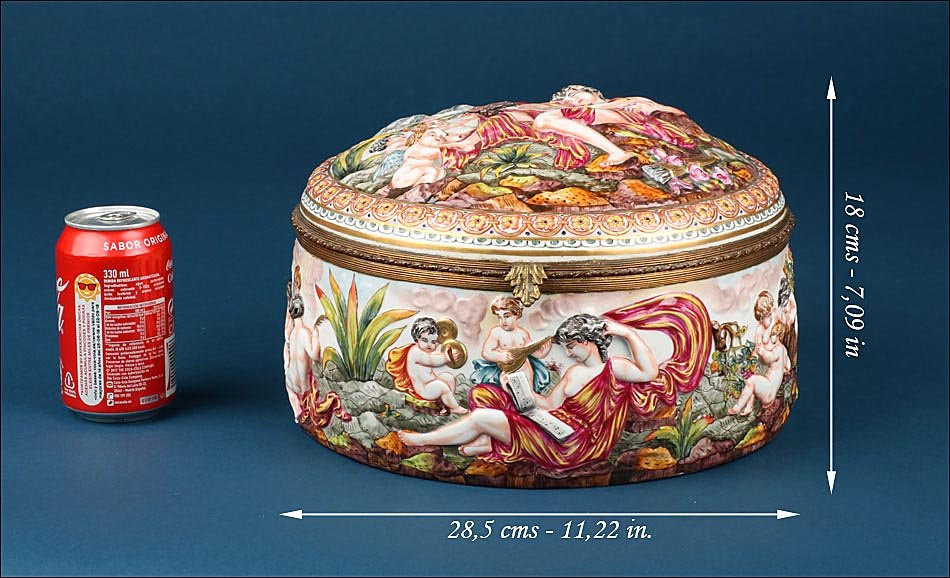

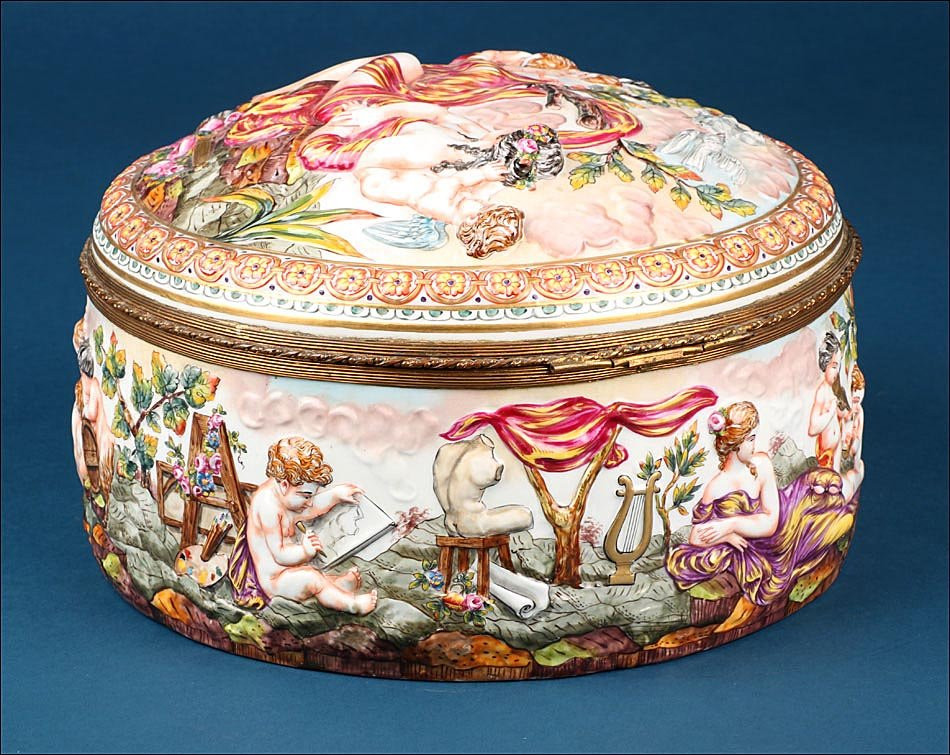
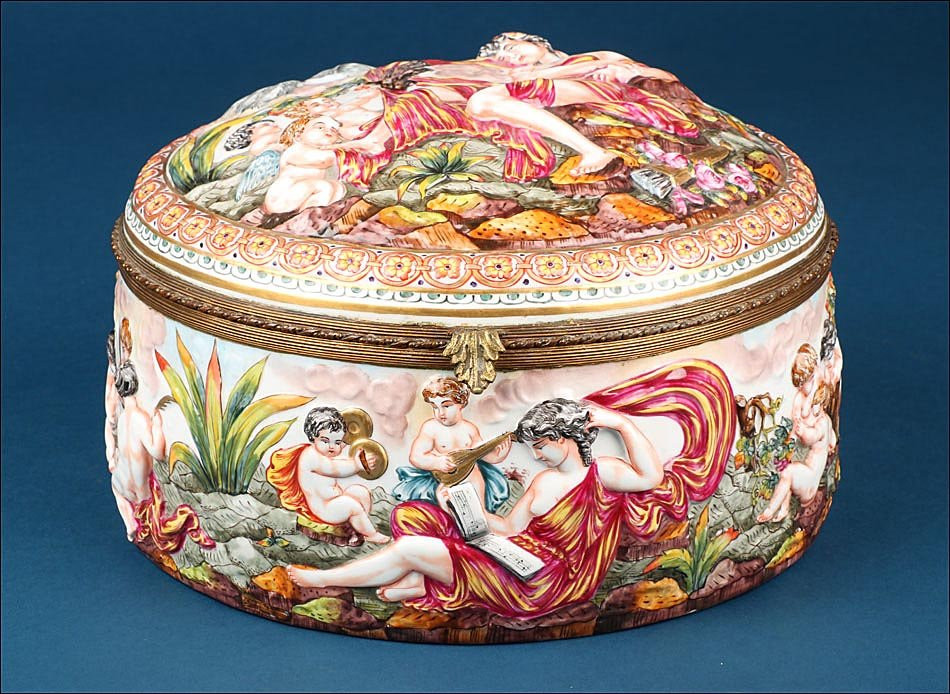
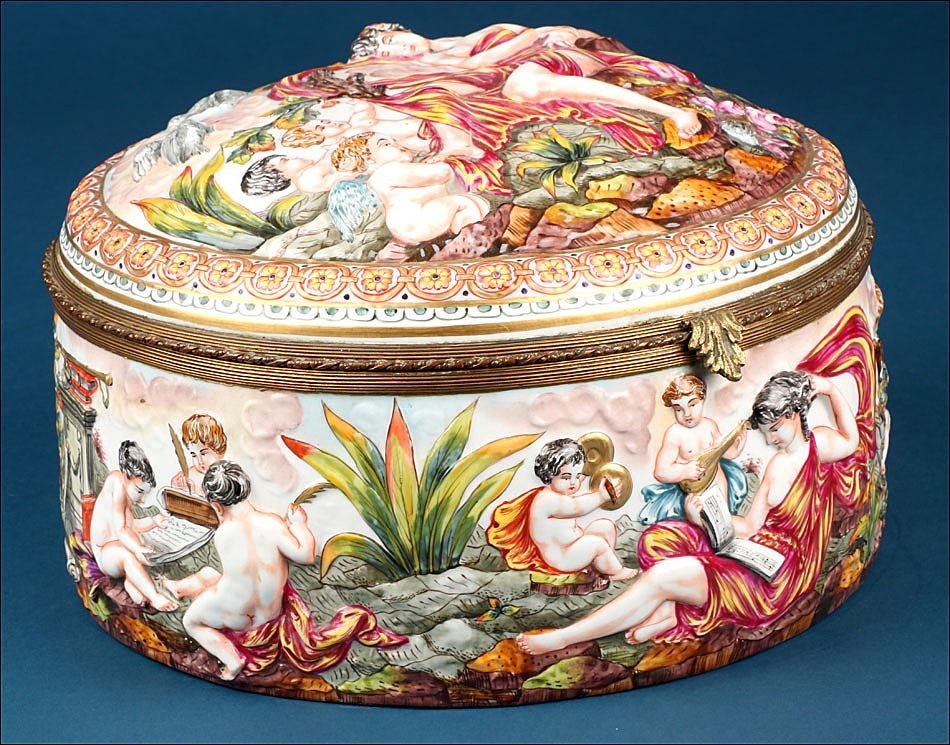


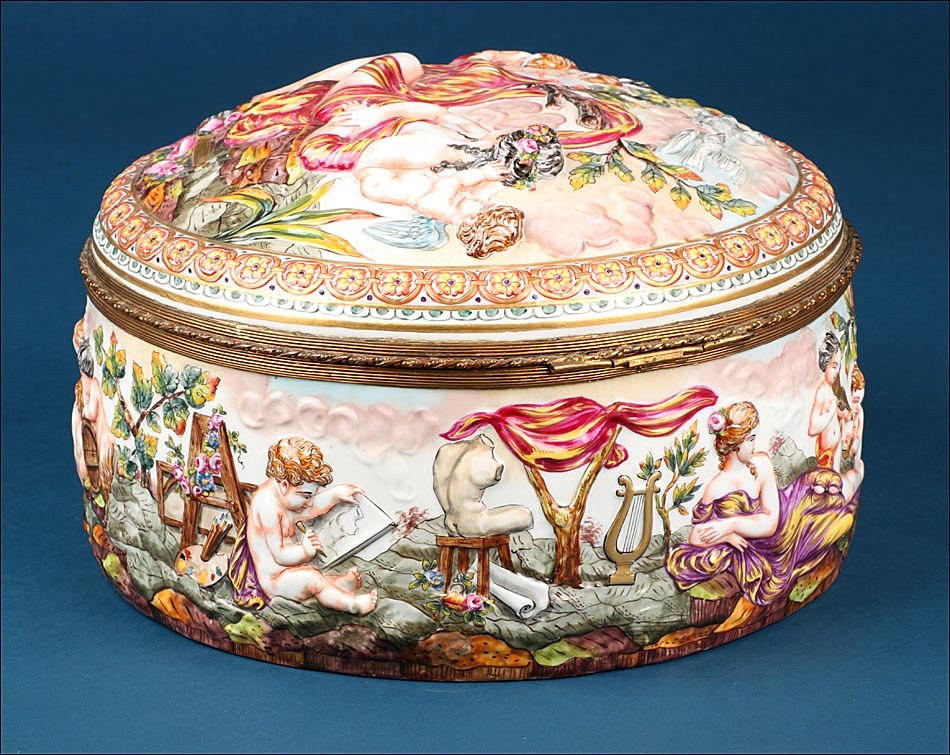
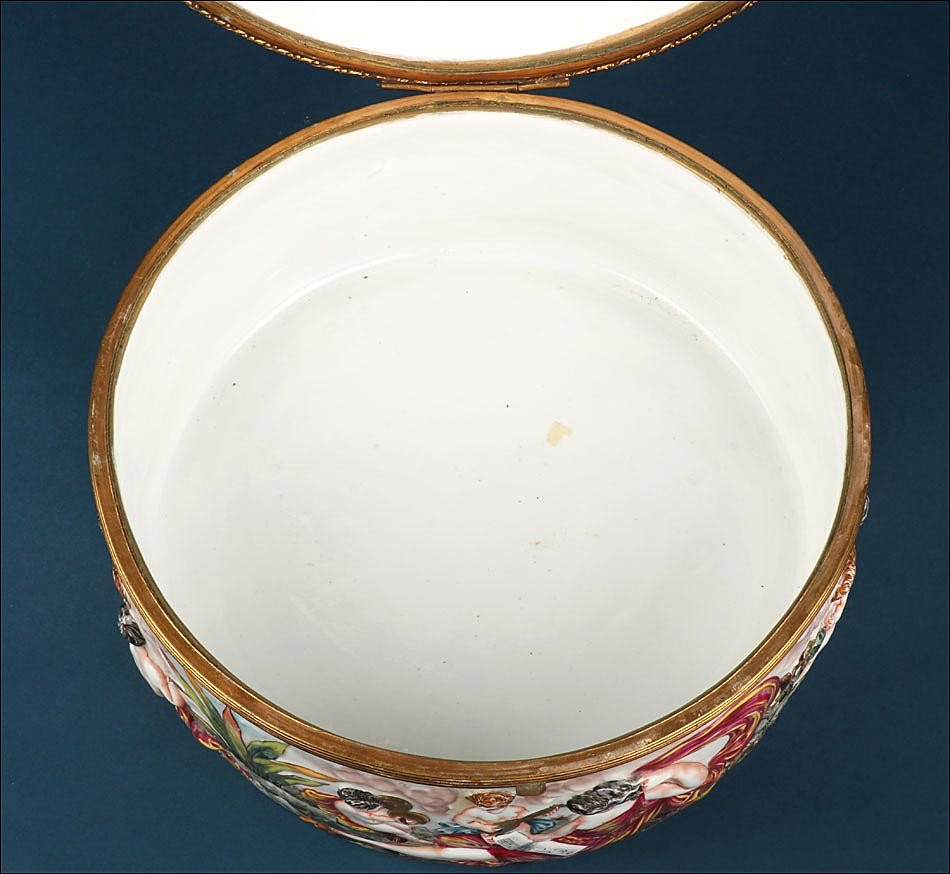
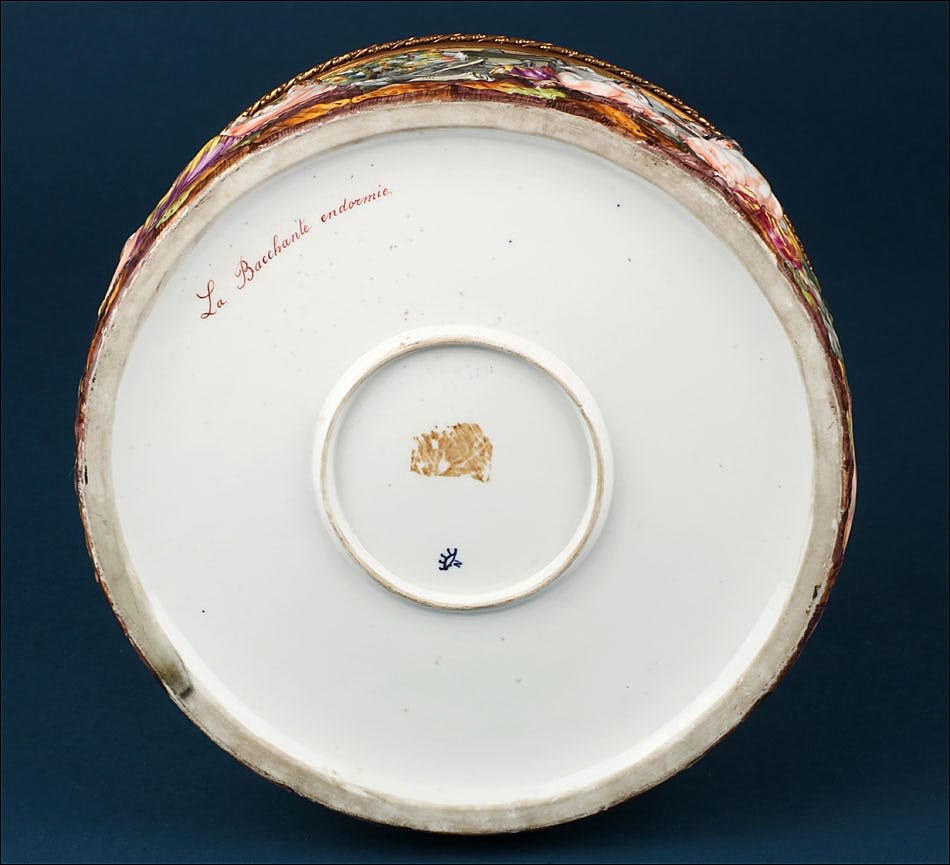
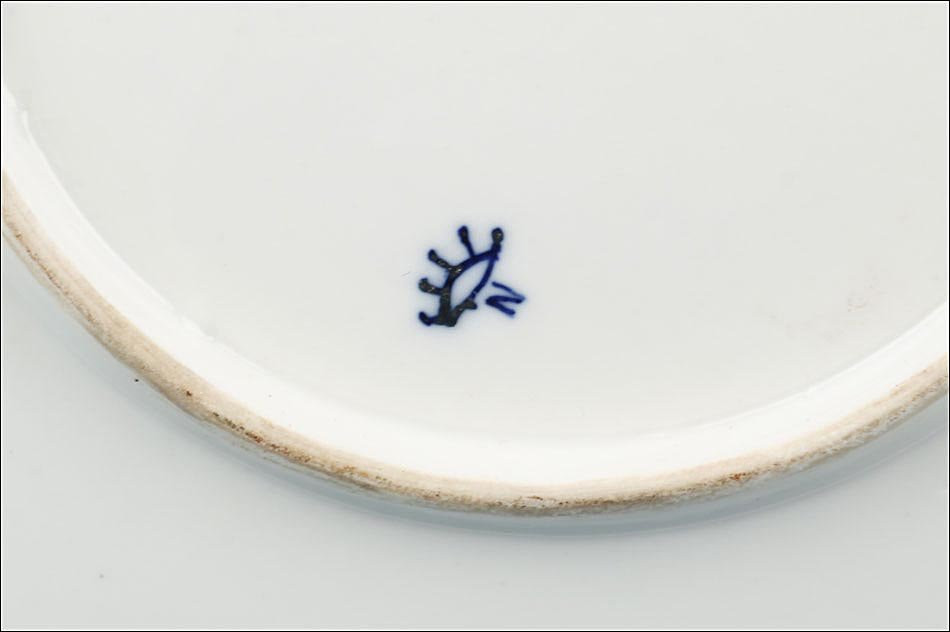





























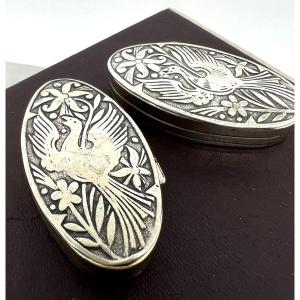
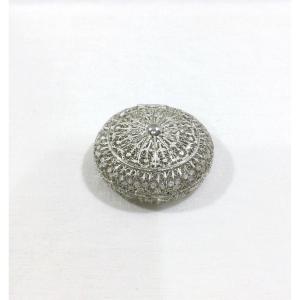

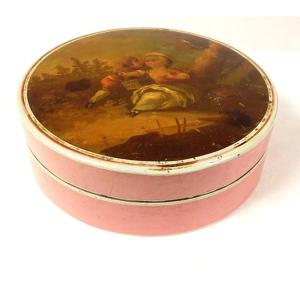



 Le Magazine de PROANTIC
Le Magazine de PROANTIC TRÉSORS Magazine
TRÉSORS Magazine Rivista Artiquariato
Rivista Artiquariato